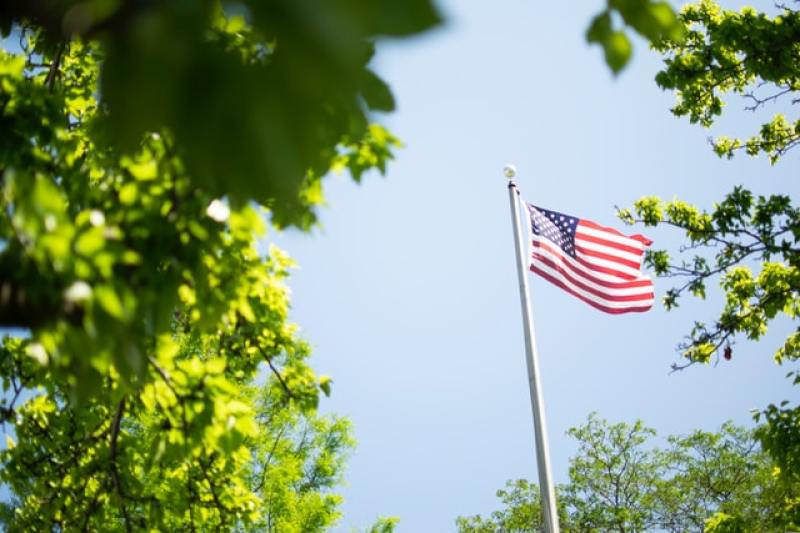
A Christian nonprofit reportedly challenged Boston's "obvious and unconstitutional discrimination" against a Christian organization at the Supreme Court.
The Christian Post said the Florida-based legal organization Liberty Counsel has filed a petition at the United States Supreme Court against the city of Boston for denying the Christian organization Camp Constitution from flying their flag during the group's 2017 Constitution Day and Citizenship Day.
Per the report, Camp Constitution requested Boston's City Hall's permission to do so but was denied it, even though the city approved other private groups that made the same request for flags on nonreligious causes, as well as flags of other sovereign countries.
The Boston City Hall has three 83-foot-tall flagpoles outside. Two are used to display the state and U.S. flags while the third is usually used for the city's. This changed for the third flag pole in 2005 and 2007 when petitions from citizens to raise other flags temporarily was approved.
There was "no record of denial" since then despite hundreds of requests for various flags, except for Camp Constitution in 2017.
"(The) denial of Camp Constitution's flag-raising request violated Camp Constitution's right to free speech under the First Amendment, as well as the Establishment Clause of the First Amendment and the Equal Protection Clause of the Fourteenth Amendment," Liberty Counsel said in its petition.
In the petition, Liberty Counsel cited instances the Boston City Hall approved other flags that were religious in its content such as the very flag of the city whose seal contains the inscription, "God be with us as he was with our fathers," lifted from the Bible and written in Latin.
Another example was the Turkish flag that depicts the Islamic Ottoman Empire's star and crescent that was approved by the Boston City Hall for 13 times between 2005 to 2019.
These instances prove, as per a statement from Liberty Counsel Founder Mat Staver, "the city's obvious and unconstitutional discrimination against Camp Constitution's Christian viewpoint," which he hopes the U.S. Supreme Court will acknowledge.
"There is a crucial difference between government endorsement of religion and private speech, which government is bound to respect. Censoring religious viewpoints in a public forum where secular viewpoints are permitted is unconstitutional and this must stop," Staver pointed out.
The Christian Post in a separate report said that Camp Constitution through its founder Harold Shurtleff filed a lawsuit against the City of Boston in 2018 for discrimination against his Christian beliefs. But the U.S. District Court Judge Denise Casper released the summary judgment in February 2020 siding with the City.
"The [then-head of the property management department Gregory Rooney] had never considered a religious flag prior to the Plaintiffs' application. There are no additional facts in the record that would suggest any improper preference for non-religion over religion or selective treatment of any person or group based on religion," Casper said in her ruling.
"The City did not alter its procedures for review of flag applications because of Camp Constitution's request, instead, Camp Constitution's request presented a novel issue for the City's consideration, which the City considered consistent with its practice and policy," she added.
It's worth noting, however, that the city has raise flags that represent other cultural and social groups, including flags supporting the LGBT community.
Boston City Mayor Marty Walsh reasoned in an interview with Boston Herald that the flagpoles are a "forum for government speech" and reserves the right of "control over the messages conveyed by the flags flown" in their flag poles, such that flying a Christian flag as that of Camp Constitution's would violate the First Amendment's Establishment Clause.
Liberty Counsel then filed a petition to the U.S. First Circuit Court of Appeals but the court's Judge Bruce Selya released an unanimous opinion that sides with the ruling of the lower court.























